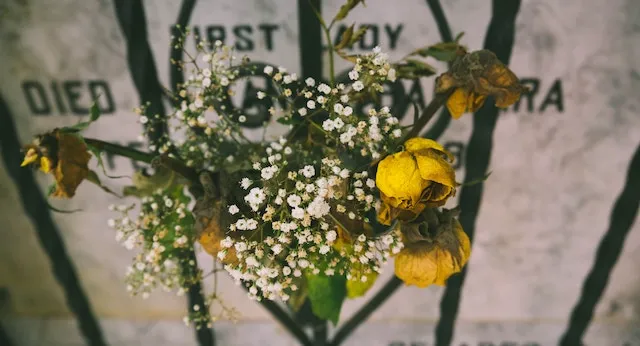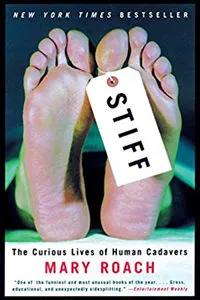
My Favorite Books About Death
This content contains affiliate links. When you buy through these links, we may earn an affiliate commission.
People who know me personally often roll their eyes when I bring up embalming methods throughout history, the benefits of natural burial, or how aquamation deserves better recognition as a more eco-friendly alternative to traditional cremation in otherwise normal conversations. It’s not like it’s my job to think or talk about this stuff or anything. I just have a deep-set fascination with death and its implications in modern society and popular culture. Now, before you run off on me, there’s good in talking and learning about death. Those who are more educated about it are less likely to fear it. As a result, they’re more likely to make necessary plans for the inevitable that would lift those responsibilities off of loved ones and make educated decisions about their own care for both before and after they die.
Despite this, the societal taboos surrounding death and everything about it make it hard for people to discuss it. I grew up in a household where death was met with fear and hatred. As a result, I wasn’t educated about it through open conversations. For me, rather, it took determination and a public library card to learn anything about it and the industries that care for people directly before and after they die. I’ve since amassed a small collection of my favorite books about death and what happens afterward.
Modern Death is an insightful book about death from the perspective of a medical doctor. In it, Dr. Warraich provides a comprehensive history of the relationship between medicine and death, the benefits of prolonging life, and the troubles of delaying death with medical intervention. He also explains the importance of planning for one’s end of life and why some people make the choices they do about death—whether it’s their own or someone else’s. The book urges readers to ask themselves the most intimate, ethically-ambiguous questions about death they might not have otherwise considered, especially if they don’t work in the medical field.
Modern Death confronts cultural norms involving death and dying and how those have changed over time since the beginning of human history. Dr. Warraich calls on statistics and experiences to provoke a personal examination of socioeconomic factors that weigh into people’s decisions regarding medical treatment (or lack thereof) at the end of life. Modern Death is an extensive look at a generally overlooked part of life in only a few hundred pages.
Stiff was the book that ultimately convinced me to become an organ and body donor (because yes, you can do both). I now own two copies of it and repeatedly push for my friends to borrow my extra and read it. I currently have one copy loaned out, and the other still sits obediently on my shelf. The only reason I don’t own a third is because I didn’t have cash on me the last time I saw it for sale at a bookstore. That’s how good the book is.
In Stiff, Mary Roach details her experiences with seeing donated bodies being put to work. Reaching into the depths of history, she also goes into the act of body donation over time and what donated bodies have been used for. Stiff is one of those books that everyone should read, regardless of whether they have an interest in death or not. It is a heavily informative read that also contains delightful, tongue-in-cheek humor characteristic of the author.
Working Stiff takes the cake for the very first book I ever intentionally read about death. As such, it holds a special place in my heart. In Working Stiff, Dr. Judy Melinek opens up about her experience being a young medical examiner in turn-of-the-century New York City. As part of the team who recovered and catalogued remains in the aftermath of 9/11, the book is a riveting account that attaches a face to the biggest disaster recovery effort the world saw to date.
Inasmuch as it is riveting, however, it is also unique. When thinking of the impact of the events that occurred on September 11th, 2001, not many consider the people who put together and implemented the teams and systems to deal with the tragic loss of human life on such a massive scale. Dr. Melinek was among those people, and her story provokes this consideration.
Dr. Bill Bass is one of the great minds behind the famed body farm in Knoxville, Tennessee, which has been popularized in a number of documentaries and films since its conception. A forensic anthropologist with a background in bone analysis and identification, Dr. Bass goes into a few of the many cases—both high- and low-profile—he’s worked with throughout his impressive career. Beyond the Body Farm provides captivating insight into the worlds of forensic anthropology and the analysis of human bones, which is far more expansive and enthralling than the average person might think.
I read this book for the first time during the summer between college and high school. It was perhaps a more contemplative portion of my life in which big changes were happening. Because of that, reading Beyond the Body Farm was—to me—an incredibly cathartic read. After all, there’s nothing more comforting than reading about the inevitable fate of the human body and the bones that result thereafter.
Granted, these are only four of the many astounding books out there by people with an up-close relationship with death and its aftermath. So, why not scout them out? It doesn’t hurt to learn and talk about it.









